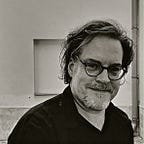Juju, Zen and a Love Supreme
Book Review: SPIRITS REJOICE! JAZZ AND AMERICAN RELIGION by JASON C. BIVENS (Oxford University Press)
By Bradley Bambarger <2015>
Interviewing clarinetist Ned Rothenberg about the confluence of jazz and religion (or at least jazz and spirituality), author Jason C. Bivins got a cautionary reply: “I wish you luck, but you’re trying to grab smoke here. I guess what you can do is put the smoke in a container so you can look at it.” This idea resonates throughout Bevins’ book Spirits Rejoice! Jazz and American Religion. The writer, a professor of religious studies at North Carolina State University who also plays jazz guitar, conveys rigorous thought and research via his text (being as quick to quote Walter Benjamin as he is Ralph Ellison). Bevins also repeatedly reminds the reader that he is exploring connections rather than making great claims.
Bevins’ book should perhaps have as its subtitle “Jazz and American Religiosity,” as many of the spiritual practices covered stem at least partly from Eastern religions and disciplines — even if the African-American church is central to his discussion. He admits that “the definition of ‘religion’ is as elusive as [that of] ‘jazz’.” A prime good of Spirits Rejoice! is that Bevins lets taste as well as conscience be his guide: He doesn’t just address the traditional canon, with the sound and signifying of Duke Ellington’s Sacred Concerts, Mary Lou Williams’ jazz mass, the Saturday-night blues/Sunday-morning gospel dichotomy in myriad hard-bop and soul-jazz LPs, etc; he also interviews a swath of contemporary artists, from veterans of the New Thing to many 21st-century seekers. Perhaps he senses that it is these improvisers — questing in the face of cultural marginalization — who must be possessed by some faith. Making key appearances are Wadada Leo Smith, Milford Graves, Roy Campbell, William Parker, Marilyn Crispell, Matthew Shipp, Hamid Drake, Ellery Eskelin and many others. And when it comes to the stuff of music, Bevins has the courage of his convictions, spending nine pages on reed player/composer John Carter’s five-LP series Roots and Folklore yet covering all of Wynton Marsalis’s Ellingtonian epics in less than three.
Religion was a key aspect of the 1960s avant-garde as it related to rising African-American self-possession, multicultural identity and the Civil Rights Movement. There must have seemed to be spiritual solutions to the challenges of life as a minority in America when secular guarantees were few. John Coltrane was the patron saint of the era’s aim toward artistic/spiritual self-actualization. Coltrane’s grandfathers were both African Methodist Episcopal Zion preachers, although he would investigate all manner of inner-minded practices in search of mystico-musical enlightenment — even LSD.
Bevins covers a world of otherworldly disciplines: the Islam to which so many such Africa-conscious boppers turned, such as Yusef Luteef (formerly William Huddleston); the Afro-centric sci-fi cosmology of Sun Ra; Afro-Cuban mysticism and ritual (though the author misses young pianist David Virelles’s absorbing ventures in this vein); the Buddhism of Herbie Hancock and Wayne Shorter; the Zen meditation of Gary Peacock and Myra Melford; the Taoism of Steve Lacy; the numerological Stockhausen-meets-Kabbalah systems of Anthony Braxton; the “radical Jewish culture” of John Zorn. Most interesting are the “communitarian” movements, from the pragmatic (Horace Tapscott’s Underground Musicians and Artists Association) to the mystical (Alice Coltrane’s ashram) to the idolatrous (the Saint John Coltrane African Orthodox Church).
If there’s an angel in this story — Coltrane — there are darker elements, too. Saxist Charles Gayle’s fire-and-brimstone jeremiads about the “sins” of homosexuality and abortion are notorious among the liberally minded who attended his ’90s concerts. Bevins also touches on Scientology, highlighting Chick Corea’s espousal beyond the searching ’70s to this day; for what it’s worth, Bevins discusses Scientology as a religion, not as a cult.
Bevins points out that the spiritual aspect of jazz can boil down to cultural ritual (Art Ensemble of Chicago, Cecil Taylor) and sheer ecstatic release (David S. Ware, Keith Jarrett). Jarrett says that there is a “surrender” involved with high-level improvisation that could be akin to submitting to a faith. Bevins quotes Abbey Lincoln on learning from Thelonious Monk and Max Roach about allowing oneself the freedom as an improviser to make mistakes, to have faith even if just in the value of the quest. “You take a chance and you reach for something. If you don’t make it, you reached for it, anyway. They call it ‘jazz’.” Bevins adds, “They call it ‘religion,’ too.”
(Originally published in the August 2015 issue of DownBeat magazine.)
